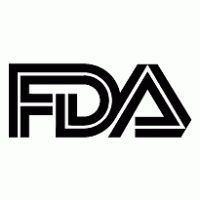Article
FDA Approves Deucravacitinib for Adults with Plaque Psoriasis
Author(s):
The daily TYK2 inhibitor agent was associated with improved rates of psoriasis surface improvement versus apremilast in clinical trials.

The US Food and Drug Administration (FDA) has approved deucravacitinib (Sotyktu) for the treatment of moderate-to-severe plaque psoriasis in adult patients eligible for systemic or phototherapy.
The new indication granted to Bristoal Myers Squibb (BMS) makes the oral, allosteric TYK2 inhibitor the first in its class approved to treat the common chronic skin disease in the US.
BMS’ approval for deucravacitinib was supported by findings from the pivotal, multinational, randomized, double-blind phase 3 POETYK PSO-1 and PSO-2 trials, in which a once-daily 6 mg dose was compared to twice-daily 30 mg apremilast and placebo in 1684 adult patients with moderate-to-severe plaque psoriasis.
Investigators sought primary endpoints of percentage of patients to achieve Psoriasis Area and Severity Index (PASI) scores of 75, and patients with static Physician’s Global Assessment (sPGA) scores 0-1 at week 16 versus placebo. They additionally sought secondary endpoints including percentage of patients to achieve PASI 75, 90, and sPGA 0 or 1 versus those on apremilast at weeks 16 and 24.
Both trials were 52-week assessments, while POETYK PSO-2 included a post-week 24 randomized withdrawal and re-treatment period. Eligible trial patients had a body surface area involvement of ≥10%, a PASI score ≥12, and an sPGA of ≥3, indicating moderate or severe disease.
In POETYK PSO-1, 58% and 69% of patients on deucravacitinib achieved PASI 75 at weeks 16 and 24, respectively, versus 13% of patients on placebo at week 16 (P <.0001), and 35% and 38% of patients on apremilast at weeks 16 and 24, respectively (P <.0001). Another 36% and 42% of patients on deucravacitinib achieved PASI 90 at weeks 16 and 24, versus 20% and 22% of patients on apremilast, respectively.
A majority of patients (54%, 59%) achieved sPGA 0 or 1 by weeks 16 and 24 while on deucaravacitinib, versus 32% and 31% of patients on apremilast. Patients in the POETYK PSO-2 trial reported similar outcomes compared to placebo and apremilast.
Investigators observed infections in 29% of patients treated with deucravacitinib at week 16, versus 22% of those treated with placebo. Only 5 patients receiving treatment reported serious infections.
In a statement accompanying the approval, BMS chief medical officer Samit Hirawat, MD, described deucravacitinib as a “breakthrough” in the treatment of patients with psoriasis, while carrying potential in other immune-mediated diseases.
“The approval of deucravacitinib represents an exciting day for patients suffering from moderate-to-severe plaque psoriasis who are not satisfied with topical and conventional treatments,” Hirawat said. “This is another extraordinary achievement for Bristol Myers Squibb, as we bring forward a new mechanism of action, the first oral treatment approved in nearly 10 years, and the first orally dosed once-daily treatment for moderate-to-severe plaque psoriasis.”




